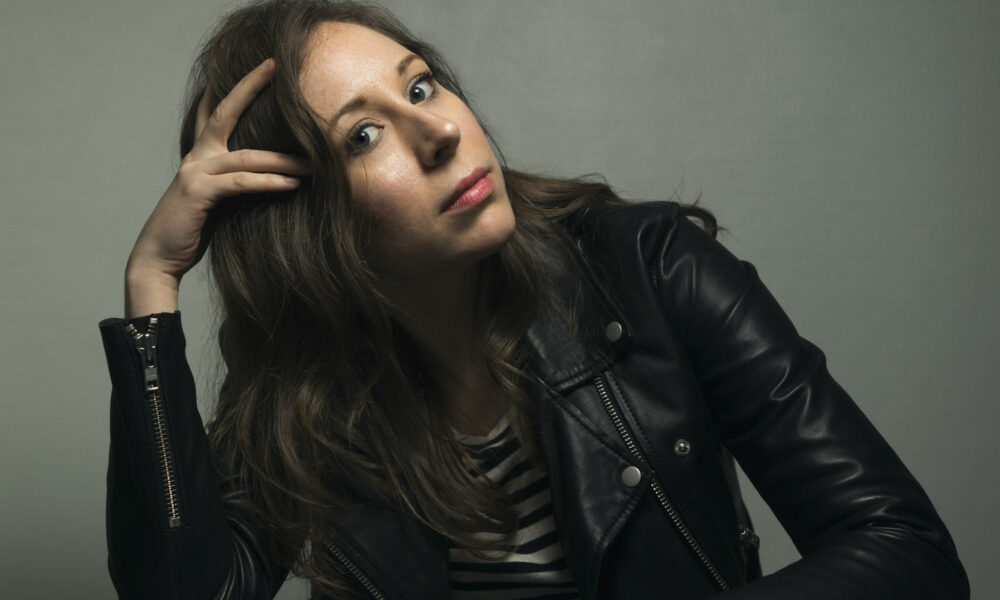

Today we’d like to introduce you to Emily Ernst.
Hi Emily, so excited to have you on the platform. So, before we get into questions about your work life, maybe you can bring our readers up to speed on your story and how you got to where you are today.
Thank you for having me! Fair Assembly began as a group of college friends who had been out of school for long enough to have learned a lot. We all lived in different places, and we all missed the way we used to collaborate as students at the Meadows School of the Arts at SMU. In the early 2000s, up to 100 student projects could take place throughout the year in the basement there. Every weekend there was something in addition to the mainstage performances, one acts, festivals, music. All run by students, and with full faculty support, and almost no faculty control. Sometimes faculty were involved! We were nearly always working on something we were excited about and trying new things. And failing a lot. But in a safe place where the stakes were low and the support was high and space was free.
In 2019, I had just come back from a year studying in France and wanted to apply a new way of collaborating to Shakespeare’s plays. I was excited to create with an ensemble, and also inspired by the way Shakespeare wrote for a specific group of people and played to their strengths. I emailed Chris Rutherford, who helped found SMU Student Theatre (SMUST) and asked if he was interested in producing a show together that had good parts for both of us. The timing turned out to be perfect. Joshua Peugh, Founder and Artistic Director of Dark Circles Contemporary Dance, joined the directing team and created movement and a lot of ensemble building. We decided on Romeo and Juliet with Chris as Friar Lawrence and me as Juliet (I was 34 and getting a little old…haha) and mounted it on a $7,000 budget to rehearse January 2020. Brandon Walker worked 80 hour weeks at the Park Ave Armory to save enough vacation to take off and come play Romeo. People came out of the woodwork to support us. Chris’s college roommate made two friar costumes, and another lent several props, our friend Xavi Castillo did our artwork, and Mikal McAllister edited our gofundme video from Senegal. Seemingly everyone, including our former professors, donated at least something, and friends flew in to see the show. We rehearsed in Sara Romersberger’s backyard and living room with a fireplace poker standing in for a sword. We found a dress of hers from the 70s that our friend Virginia Kull Young had worn in Twelfth Night at SMU in 2004, and pulled it out of her closet for rehearsal. Sara actually housed an artist for a month and lent us her extra car. We paid two equity contracts, two live musicians who were also composers, 10 actors, a physical dramaturg, and a choreographer. We crowd-funded it! The result was something we were really proud of, and when the press came and asked who we were, we decided to make it official with the name “Fair Assembly,” which was simply a line from our first production (Romeo says it). This phase appears in several of Shakespeare’s plays. It’s when Romeo reads the list of people going to the Capulet Ball and he’s like, “wow. A fair assembly.” That’s how I feel at rehearsal when I look around and see so many inspiring people.
When I mentioned the upcoming project, people would ask, “What’s your concept?” At first, I thought, “I wish I had some clever idea about the show. Maybe I just don’t have that skill.” I quickly realized it had nothing to do with skill–that I wasn’t interested in coming up with an idea on my own and asking everyone else to get on board. I had an interest in nurturing the creative power of the performer. That is really who we are. And if there is magic or life, it should exist between performers. If that isn’t there, what are we doing? Why do we care what the costumes or set looks like if the performances are lifeless? I don’t mean to imply that we are immune to being boring, but that’s where we put our focus. When we spend money, it’s going to be on the actors. And, depending on the show, costumes. Not on building a set or special effects. When you have a space like Arts Mission Oak Cliff, there’s kind of a built-in set, you know? We look for spaces that feel organic and have some kind of poetic resonance that informs the play. The space has to be alive, too.
When the pandemic hit, we started reading a play a week and then two. We read with everyone we could think of, including SMU grads from 2020 to 1983 and people from all over the country. Though we aren’t affiliated with SMU, we’ve loved cultivating an alumni network over the last two years. Fifty plays over a hundred participants later it was late 2021, and time to start planning another show. We chose Macbeth and performed it this past May and I co-directed with Morgan Lauré, and we were also both in it. We had originally planned to work with Dr. Durell Cooper as a third director, but couldn’t make the new dates work with his schedule at NYU. This time we raised $25,000 (and received a pop-up grant from TACA) and were able to hire a costume designer and four additional actors. We hired two equity contracts again. When we pushed the production from January to May during Omicron, we made the best of it by hosting a weekend-long workshop to discover more about the witches. Two company members–Steven Smith who designs our costumes and Ivan Dillard, who is our composer attended early workshops and contributed directorial ideas. Sara Romersberger, who was our professor at SMU, hosted the workshop outside at her home and choreographed the violence. She is our physical dramaturg, and has a way of unleashing what is already there in everyone, while clarifying what is said with the slightest physical detailing.
I love what Anne Bogart said: “If you decide what it is before you do it, then you have made the play smaller than you.” Morgan and I didn’t know if we should have a physical ghost of Banquo or have Macbeth yell at nothing. She and I thought the latter was more terrifying, but we tried it both ways. We do our best to create theatre that is alive at every moment, and each play is a new way of finding that. Romeo and Juliet had three directors who worked as a team, and two of whom also performed. Macbeth had two. Every person involved in both shows contributed something profound. We’re mounting As You Like It this summer, and bringing in a guest director from Chicago after we come to a few big decisions as a group in some early workshops. It’s my first time not directing, but I still typically do the initial cutting of the play, which takes about six months as we figure out casting and adjust it each time we read it out loud. We’re open to adding or subtracting anything as we go. We rarely make huge cuts, but letting the cutting remain dynamic until we’re running the show is an opportunity to respond to the people involved. As we figure out what to do next, if enough people have some dream roles and are excited about the play, and it feels right, and we have a hunch about it, we move forward. That’s the renewable energy source that drives the work and makes it fun.
In addition to our third Shakespeare play this summer, we have two international collaborations! In April, I invited some friends and prolific artists I deeply admire–Carlos García Estévez and Paige Allerton of Manifesto Poetico–to hold their extremely popular Open Laboratory in Dallas. It’s insane that they’ve agreed to come here. People come from all over the world to work with them. I was planning to find a way to do that, actually, and then thought about how much I love producing things and what a gift it would be to do this work here. Paige and I talk nearly every day about what the Lab will be and how to create the best environment for the work, and how to communicate what it will be like to the community, and Carlos and I had a long zoom a few weeks ago about his work and 25+ years of research and producing internationally. There are several videos on Fair Assembly’s instagram where you can see him discussing this, but the most important takeaway from that conversation for me was that you cannot be dogmatic in theatre if you want it to be alive. The last Open Lab they did was in Paris in 2019, before everything shut down. I wanted something for Dallas that would be impossible to find anywhere else in the US, and a way to get to know other artists who respond to the way they work. Anyone can apply for one or both labs: April 3-7 is called “Spatial Dramaturgy: The Collective”, and the second one is called “The Mask Dimension: A Source” (April 10-14). All of them take place at Arts Mission Oak Cliff from 10am-5pm. Lunch included. Cooked by Carlos. As he said recently, “Applications consist of a resume and a letter of motivation. Details can be found here: https://www.
What we do after As You Like It will be different, too. And it won’t even be something by Shakespeare, actually–Emily Bernet (who played a witch in Macbeth and created Bombshell Dance Project) and I are working with two more artists I also greatly admire and who have become great friends: Mai Rojas and Raffaella Crapio of Los Escultores del Aire. Emily and I will go to Barcelona in August to create something new with them. We met when Teatro Dallas hosted a free weeklong workshop as part of their Alquimia series. As usual, we have no idea what it will be, but we’ll figure it out together! Emily and I met at Cry Havoc theater, and when you know you have to work with someone, you know it pretty quick. I’m thrilled that we’ve finally found that project.
Appreciate you sharing that. What else should we know about what you do?
I guess to reiterate that with Fair Assembly, there is no method. Only research, trial, lots of error, and a lot of experience working in very different ways. Work ethic and attitude is infinitely more important to us than a resume or having done a graduate program. I understand that auditions are necessary in the world, but they can also bring out the worst in everyone. We try to find other ways of getting to know how people treat the process and others. It’s always thrilling to hear from people who want to work together. The first person to do that ever was Mac Welch–he’d just graduated from SMU and sent an email, and we all got together to chat. I am slightly ashamed to say that I was nervous about casting young people in Macbeth, and he (and Thomas Magee) proved what an unreliable heuristic that is. I learned from both of them, obviously. The impulse to be formulaic or stick to what you’re comfortable with is seductive AF!! Watch out for it! It’s a creativity killer. Even our fifth grader Nadine, who played the child of Macduff, said to me at one point: “Macbeth really has more sound than music, doesn’t it?” I mean, GET ON HER LEVEL! Haha!
What were you like growing up?
I was very shy as a kid. I started playing piano when I was 7 and put most of my creative energy into that outlet for years. I was terrified of performing, but I loved playing for myself. I went to a piano camp in 8th grade that we could only afford because my dad agreed to be a camp counselor there, and I was expected to practice 8 hours a day. I found it impossible. I also had recently discovered theatre at vacation bible school, which I hated, except for the “skits”: little daily 30-minute performances. I was riveted by live theatre and realized at a grand piano in the woods, practicing solo at this incredible music camp in Estes Park, Colorado, that I was simply there for the wrong discipline. If I were expected to work in the theatre for 8-10 hours a day, it would be perfect. I white-knuckled my way through it, and became a much better pianist, but that struggle gifted me with a new purpose and a lot of excitement about finding a way to become obsessed with creating theatre. Learning to practice ideas and not notes helped me understand what it meant to memorize action and intention, rather than just words.
Everything after music camp was about how to find a way to spend as much time doing or seeing theatre as possible. I discovered Shakespeare in high school and wrote adaptations of fairy tales that I recorded on one of those low-tech VHS cam corders for hours in the evenings and weekends with my sister. We did nothing in post, so the “cuts” involved literally freezing in place, moving the camera, and setting up a different scene. By the time we finished a 30-second section, the sun would have set.
I was the 8th grader who spent weekends with my English teacher and Principal at school producing a grade-wide USO show–writing the script, coming up with the show flow, and helping raise money for a trip to DC when the proceeds went to the WWII Memorial (we attended the ground-breaking ceremony as a 9th-grade class the following year). Looking back, it was my first experience producing. I had educators who gave us the reigns and just provided the space and resources. It was transformative. I just finished directing an 8th-grade production of the Music Man right now at Cistercian Preparatory School and found it thrilling to see kids step on stage for the first time and surprise themselves by how good they were and how much they grew in a few weeks.
I was eager to get out of Nebraska. I was president of our thespian troupe, and to this day, I am convinced that election was rigged by my theatre teachers who knew I would be indefatigable but might not win the popularity contest. Haha. I’ve never asked. What I know now (as of four months ago) is that I had undiagnosed ADHD and had finally found the thing that I could focus on for hours at a time. I just loved it. I felt so found. I’m still learning how to relax when the work is so exciting and when it seemed so impossible until I decided to combine resources to self-produce. But everyone learns (sometimes the hard way) that taking care of yourself and learning to rest is the most essential skill any artist can learn.
Pricing:
- All students attend free
- Tickets range from $25-$35
Contact Info:
- Website: www.fairassembly.org
- Instagram: fairassembly
- Facebook: facebook.com/fairassembly
- Other: https://vimeo.com/user108925009
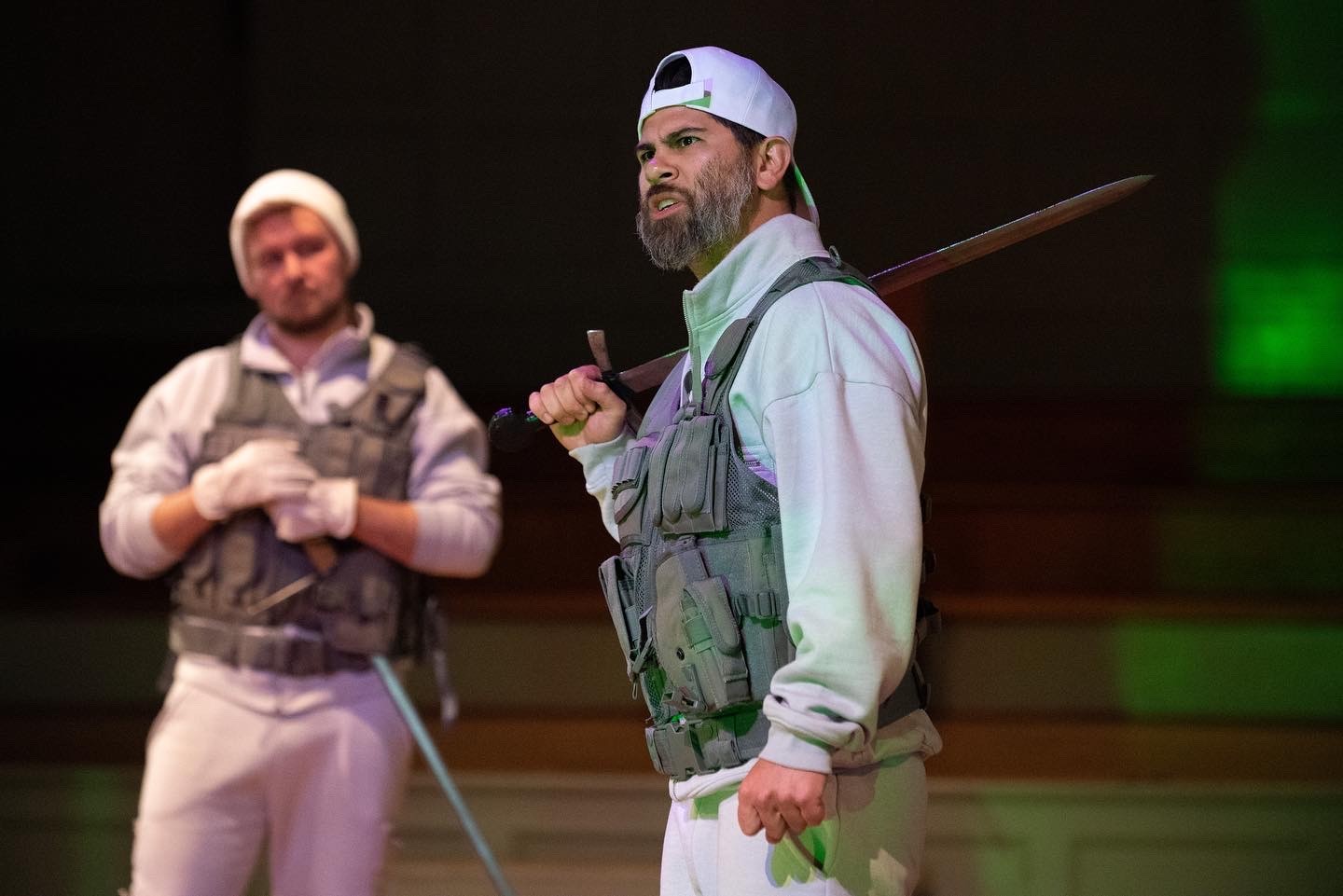
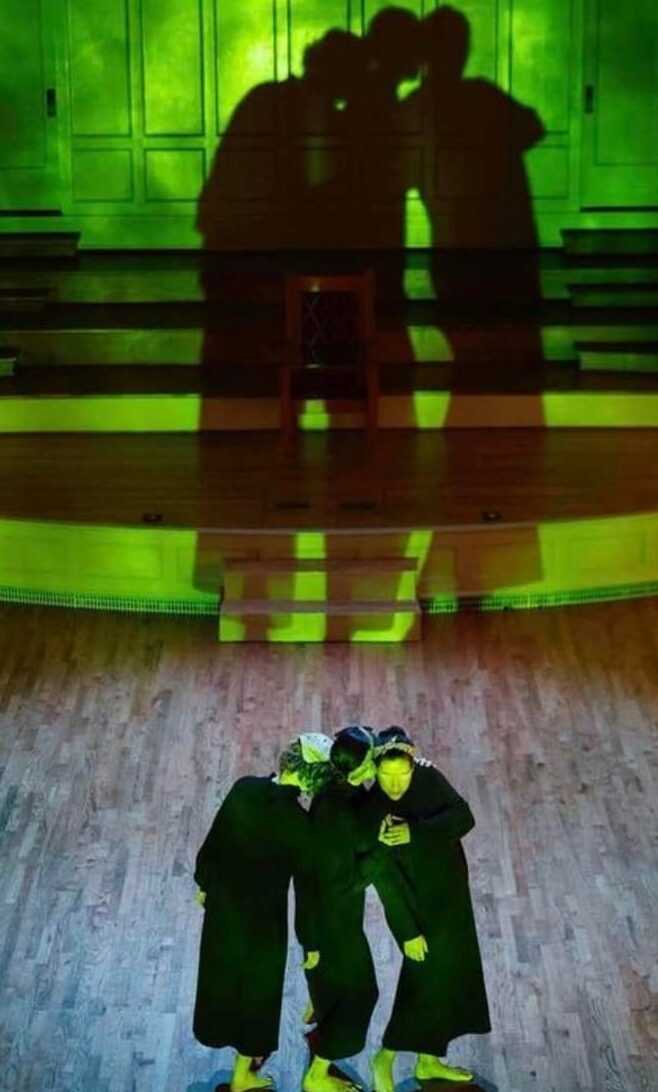
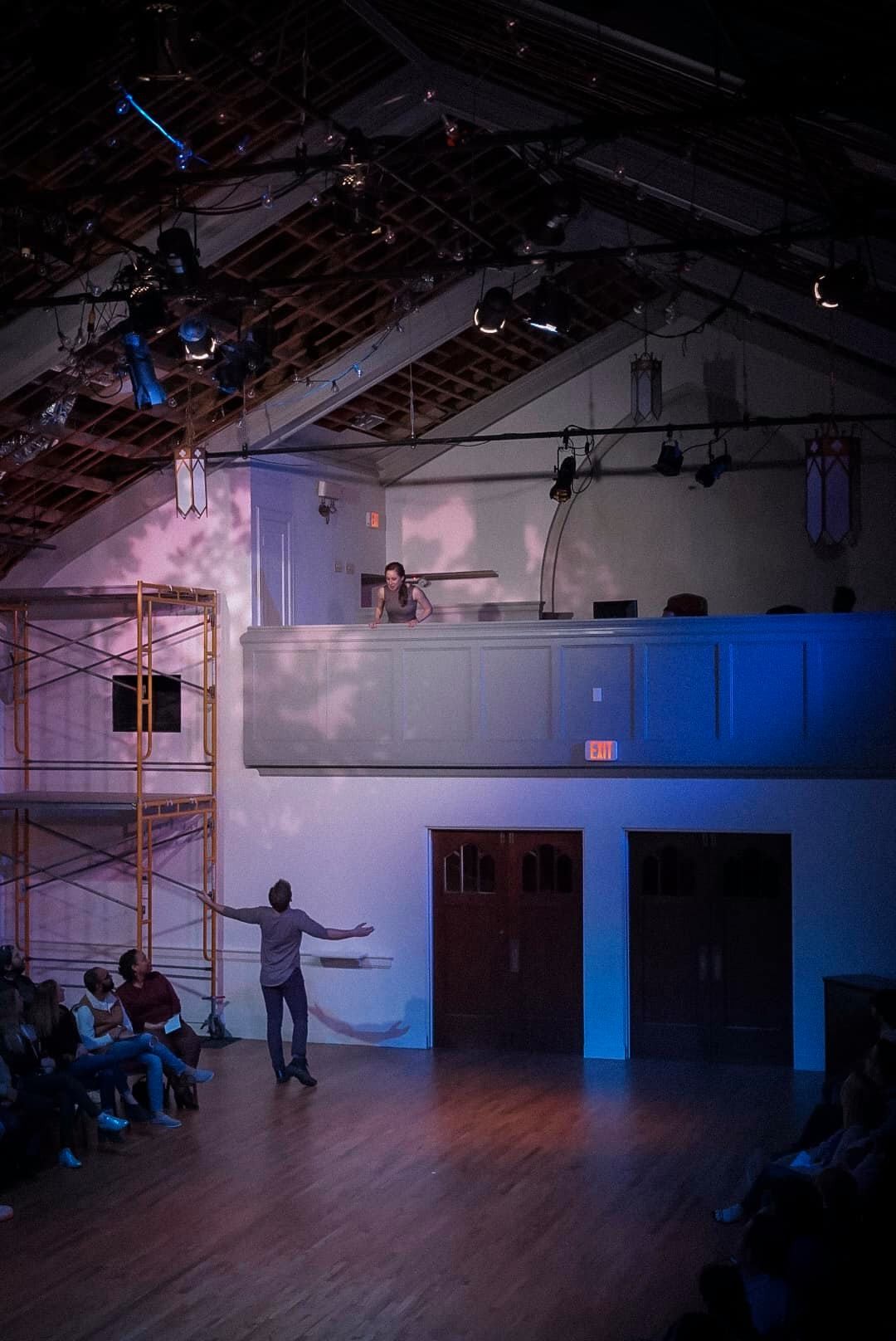
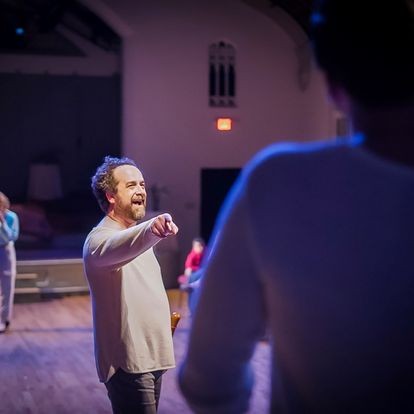
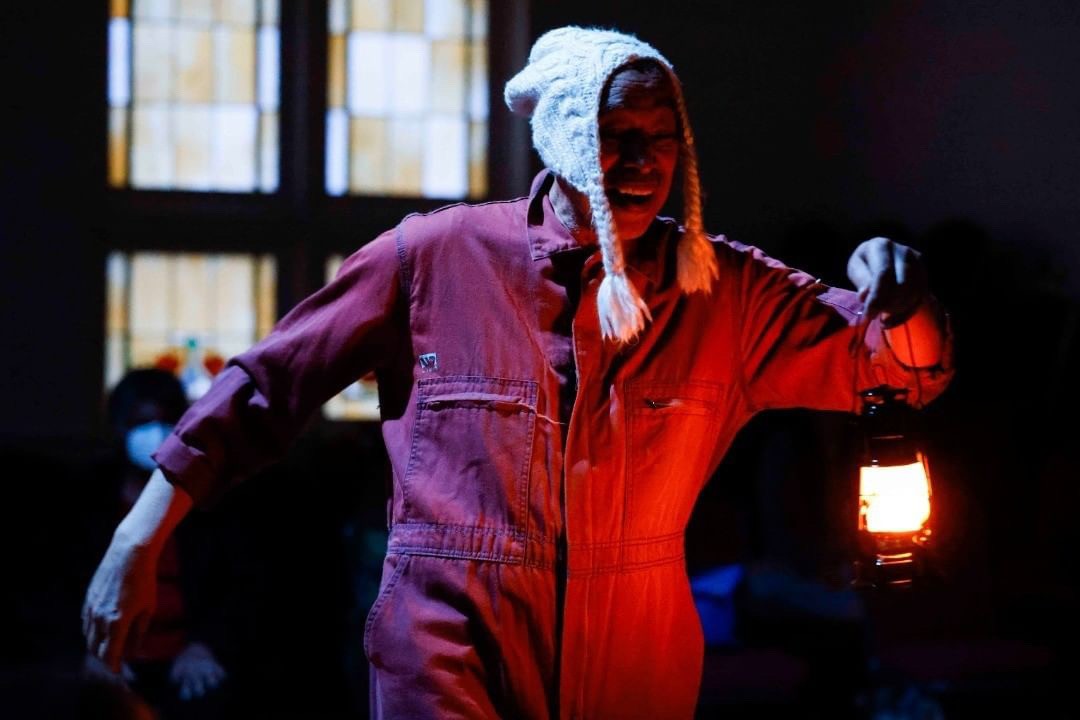
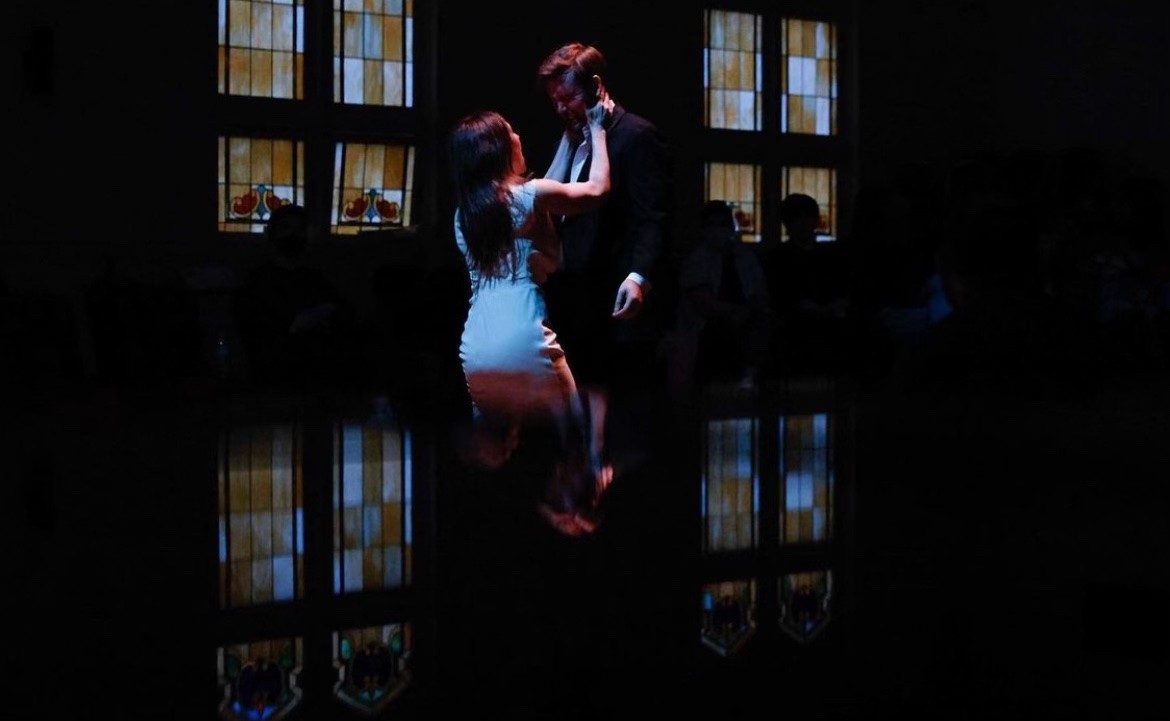
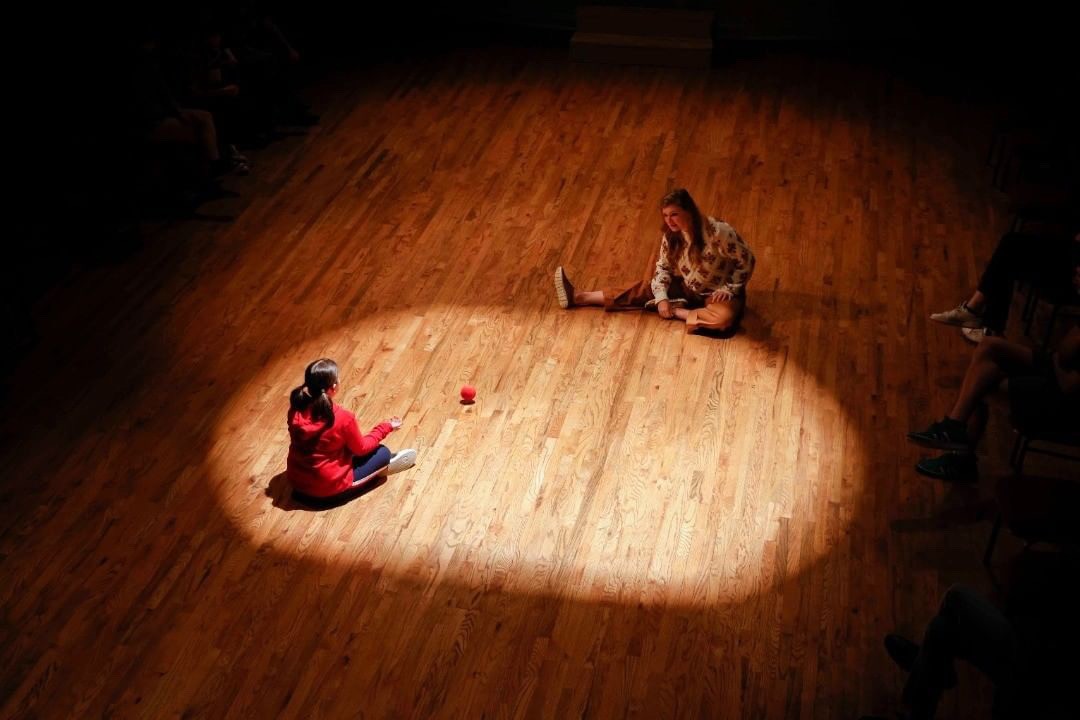
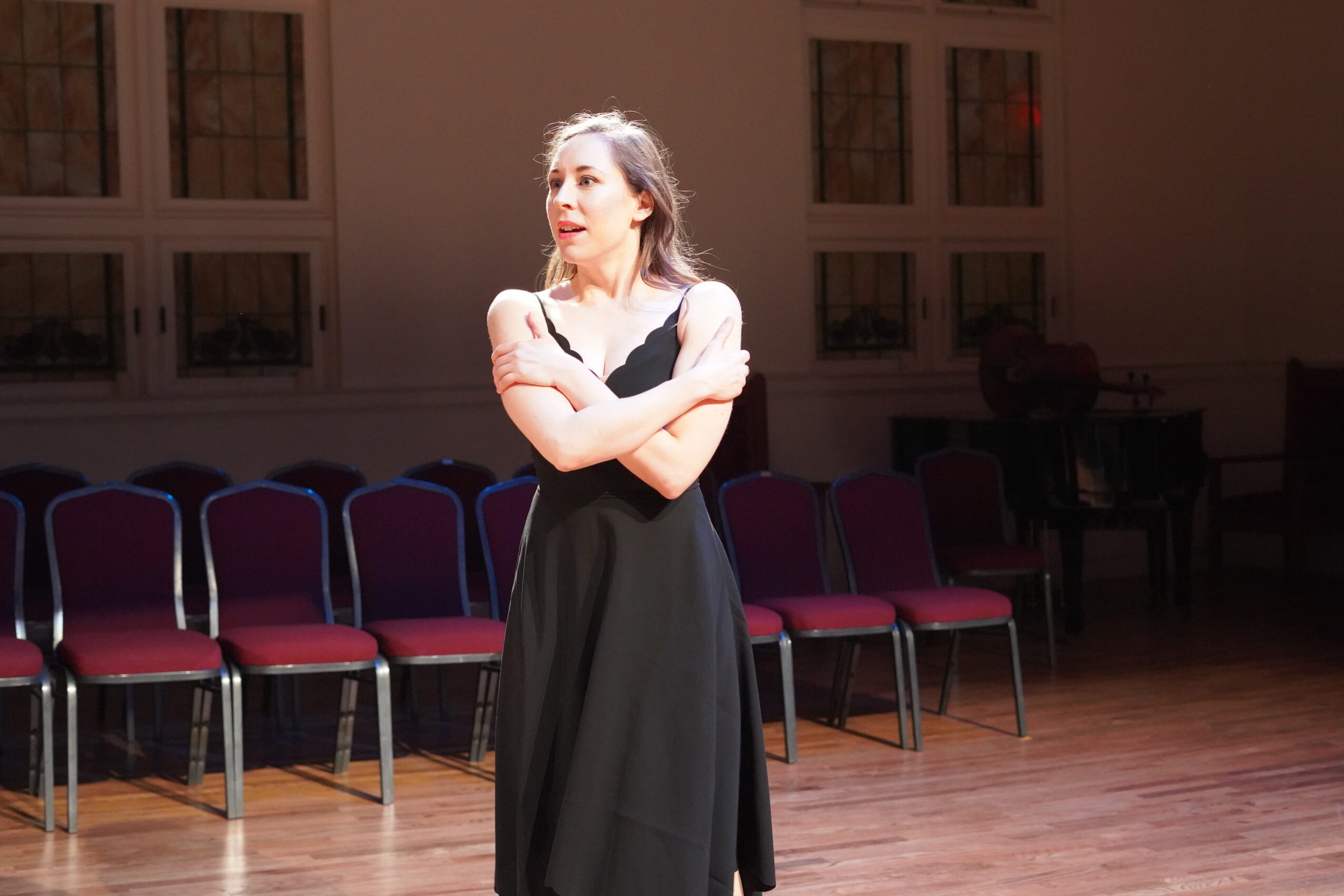
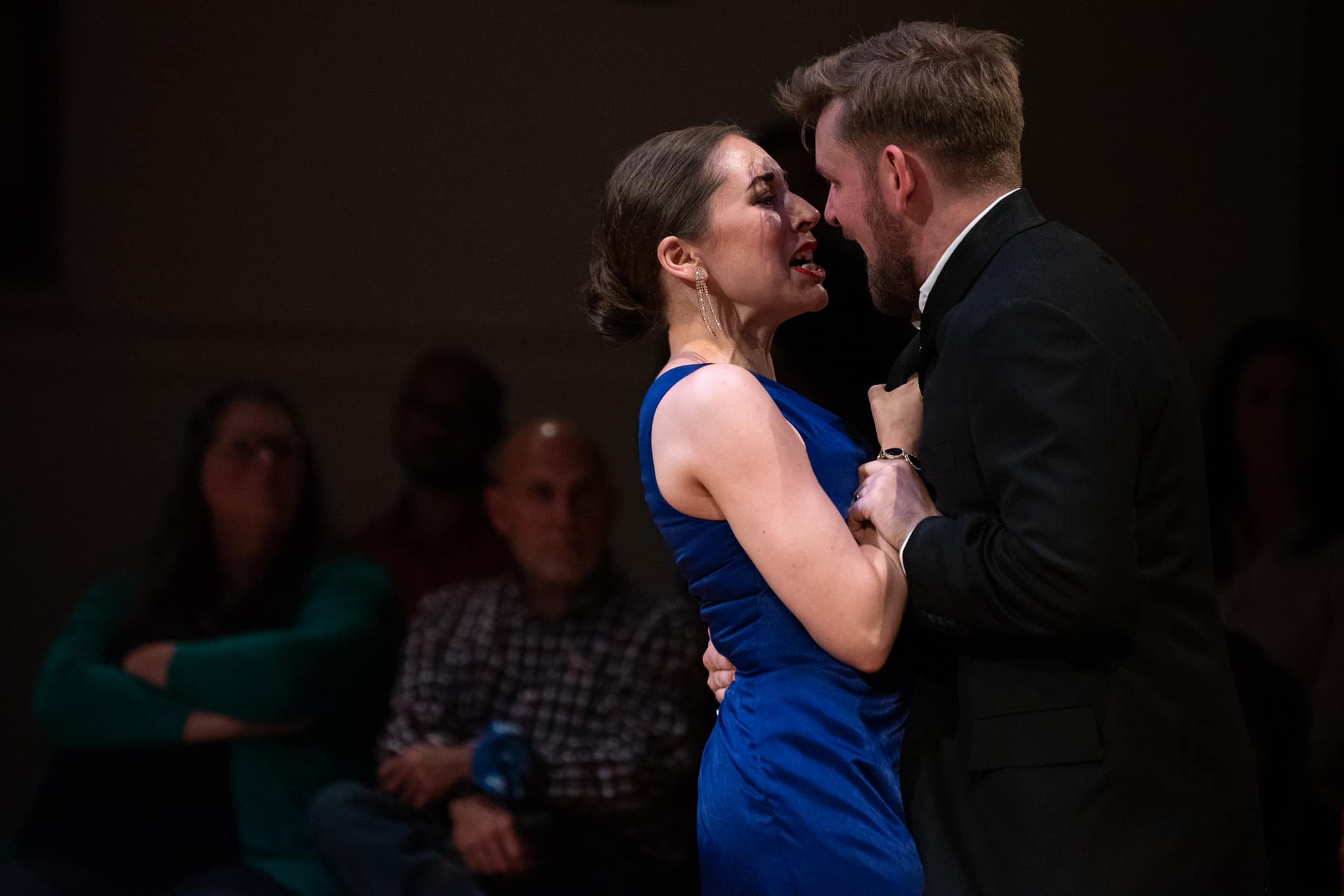
Image Credits
Brandon Walker and Flip Croft-Caderao as Macbeth and Banquo by Ben Torres
Lillian Bornstein, Emily Bernet, and Caitlin Galloway as the witches in Macbeth by Ben Torres
Brandon Walker and Emily Ernst as Romeo and Juliet by Chadi El-Khoury
Michael Federico as Capulet in Romeo and Juliet by Chadi El-Khoury
Dennis Raveneau as the Porter in Macbeth by Shafkat Anowar
Emily Ernst and Brandon Walker as the Macbeths by Shafkat Anowar
Flip Croft-Caderao, Shawn Gann, Mac Welch, and Brandon Walker in Macbeth by Ben Torres
Nadine DeBerardinis and Morgan Lauré in Macbeth by Shafkat Anowar
Emily Ernst as Juliet Photo by Chadi El Khoury










